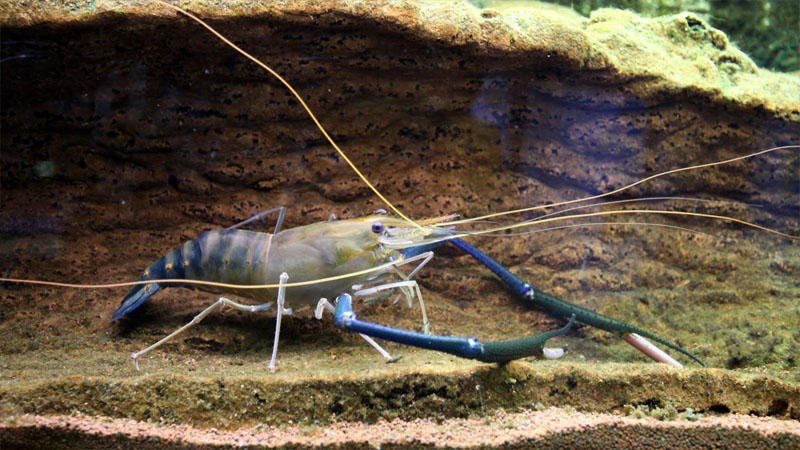Exclusive content

Efficient utilization of plant-based diets in the giant freshwater prawn, Marcrobrachium rosenbergii, is a topic of interest in aquaculture. Recent research suggests that the efficacy of such diets varies among individual shrimp, potentially due to differences in physiological and metabolic responses. To delve deeper into this phenomenon, a study was conducted to investigate the growth response of shrimp fed a soybean-based diet (SBM).
Methodology: Examining Growth Disparities
Two hundred shrimp were subjected to a 90-day feeding regimen consisting of SBM. Following the feeding period, specific growth rates (SGRs) were determined for each shrimp individually. Shrimp exhibiting the highest and lowest 5% SGRs were categorized as fast-growing (F-shrimp) and slow-growing (S-shrimp), respectively. Samples were then collected to analyze haemolymph chemistry and carcass composition.
Surprisingly, haemolymph chemistry parameters did not exhibit significant differences between F-shrimp and S-shrimp. However, disparities in carcass proximate composition were observed, with F-shrimp demonstrating higher protein content compared to S-shrimp. This suggests a potential difference in protein anabolism between the two groups.
Transcriptome Analysis: Shedding Light on Molecular Mechanisms
Further analysis was conducted on the hepatopancreas of the sampled shrimp using RNA sequencing (RNA-Seq). The results revealed upregulation of genes encoding physiological and metabolic enzymes in F-shrimp compared to S-shrimp. This indicates that the enzymes and proteins involved may play a role in mediating the efficient utilization of SBM-based diets for growth promotion in shrimp.
Interestingly, various differentially expressed genes (DEGs) associated with the immune system were observed between F-shrimp and S-shrimp. This suggests potential differences in immune processes and responses to dietary components.
Conclusion: Implications for Shrimp Farming
The upregulated expression of enzymes associated with physiological and metabolic processes, along with increased protein anabolism in F-shrimp, suggests a mechanism for the efficient utilization of SBM for maximal growth. These findings could inform strategies for optimizing diet formulations and enhancing growth performance in shrimp aquaculture.